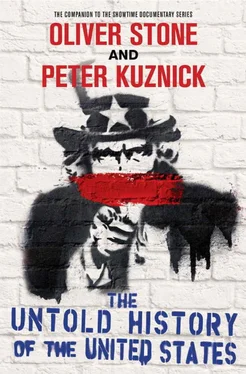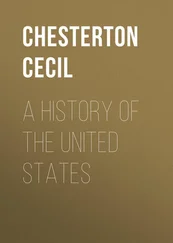But those hopes were crushed when German socialists, claiming they had to defend the country against the Russian hordes, voted for war credits and the French, vowing to defend against the autocratic Germans, did the same. Only in Russia and Serbia did the socialists stand true. In country after country, nationalism trumped internationalism, loyalty to nation outweighed loyalty to class. Europe’s naive young men marched off to die for God, glory, greed, and defense of the fatherland. Humanity was dealt a blow from which it has never fully recovered.
The slaughter was on as civilization plunged into what Henry James described as “this abyss of blood and darkness.” 11American social reformer Reverend John Haynes Holmes expressed the crushing impact it had on reformers everywhere: “suddenly, in the wink of an eye, three hundred years of progress is tossed into the melting-pot. Civilization is all gone, and barbarism come.” 12
Most Americans sympathized with the Allies against the Central Powers, but few clamored to join the fight. Americans of all political persuasions feared getting dragged into Europe’s bloodletting. Eugene Debs urged workers to oppose the war, wisely observing “Let the capitalists do their own fighting and furnish their own corpses and there will never be another war on the face of the earth.” 13As reports of the fighting filtered in, antiwar sentiment held strong. The most popular song of 1915 was “I Didn’t Raise My Boy to Be a Soldier.”
Despite overwhelming sympathy for the Allies, the United States declared neutrality in the war. But many Americans, particularly those of German, Irish, and Italian heritage, sided with the Central Powers. “We have to be neutral,” Wilson explained, “since otherwise our mixed populations would wage war on each other.” 14It was, however, a neutrality in principle more than in practice. Economic interests clearly placed the United States in the Allied camp. Between 1914, when the war began, and 1917, when the United States entered, U.S. banks loaned $2.5 billion to the Allies but only $27 million to the Central Powers. The House of Morgan was especially involved, serving as the British government’s sole purchasing agent between 1915 and 1917. Eighty-four percent of Allied munitions bought in the United States during those years passed through Morgan hands. 15Overall, the $3 billion the United States was selling to Great Britain and France by 1916 dwarfed the miniscule $1 million it sold to Germany and Austria-Hungary. Although deep-seated resentments toward Great Britain, stemming from the Revolutionary period and the War of 1812, had not completely abated, most Americans identified the Allied nations as democracies and Germany as a repressive autocracy. Czarist Russia’s involvement on the Allied side made it difficult to draw such clear lines. And both sides regularly violated the United States’ neutral rights. Great Britain, relying on its superior naval power, launched a blockade of northern European ports. Germany retaliated with a U-boat (the German word for “submarine” was Unterseeboot ) campaign that threatened neutral shipping. Wilson accepted the Allied blockade but protested vigorously against Germany’s actions. Bryan foresaw clearly that Wilson’s tilt toward the Allies would drag the United States into the war and tried to maintain a more evenhanded approach. He had opposed allowing loans to the combatants, warning Wilson, “Money is the worst of all contrabands because it commands everything else.” 16Though intent on remaining neutral so that he could help mediate an end to the war, Wilson rejected Bryan’s effort to bar U.S. citizens from traveling on belligerents’ ships.
In May 1915, Germany sank the British liner Lusitania, leaving 1,200 dead, including 128 Americans. Roosevelt called for war. Despite initial disclaimers, the ship was in fact carrying a large cargo of arms to Great Britain. Bryan demanded that Wilson condemn the British blockade of Germany as well as the German attack, seeing both as infringements of neutral rights. When Wilson refused, Bryan resigned in protest. Though Wilson had won reelection in 1916 on the slogan “He kept us out of war,” he was increasingly coming to believe that if the United States didn’t join the war, it would be denied a role in shaping the postwar world. 17
On January 22, 1917, Wilson dramatically delivered the first formal presidential address to the Senate since the days of George Washington. He laid bare his soaring vision for peace and the future. He called for “peace without victory” based on core American principles: self-determination, freedom of the seas, and an open world with no entangling alliances. The centerpiece of such a world would be a league of nations that could enforce the peace, a demand initially advanced by groups within America’s peace movement such as the Woman’s Peace Party.
When he concluded, the Senate erupted in applause. Senator John Shafroth of Colorado called it “the greatest message of a century.” 18The Atlanta Constitution wrote, “‘Startling,’ ‘staggering,’ ‘astounding,’ ‘the noblest utterance that has fallen from human lips since the Declaration of Independence,’ were among the expressions of senators. The president himself after his address said: ‘I have said what everybody has been longing for, but has thought impossible. Now it appears to be possible.’” 19Despite the Republicans’ carping, Wilson’s peace message struck the right chord with most Americans. But the Europeans, having shed rivers of blood in two and a half years of fighting, were not feeling so magnanimous. French writer Anatole France observed that “peace without victory” was like “bread without yeast,” “a camel without humps,” or “a town without brothel… an insipid thing” that would be “fetid, ignominious, obscene, fistulous, hemorrhoidal.” 20
Germany’s resumption of submarine warfare on January 31, 1917, after a hiatus of almost a year, and its clumsy appeal to Mexico for a wartime military alliance that would facilitate a Mexican reconquest of Texas, New Mexico, and Arizona, intensified anti-German sentiment and heightened the pressure on Wilson to intervene. But Wilson’s real motive was his belief that only by entering the war could he be guaranteed a voice in negotiations. 21When Jane Addams and other leaders of the Emergency Peace Federation visited Wilson at the White House on February 28, the president explained that “as head of a nation participating in the war, the President of the United States would have a seat at the Peace Table, but that if he remained the representative of a neutral country he could at best only ‘call through a crack in the door.’ The appeal he made was, in substance, that the foreign policies which we so extravagantly admired could have a chance if he were there to push and to defend them, but not otherwise.” 22
On April 2, 1917, Wilson asked Congress for a declaration of war, saying, “the world must be made safe for democracy.” Six opposed it in the Senate, including Robert La Follette of Wisconsin, and fifty voted against it in the House, including Jeannette Rankin of Montana, the first woman elected to Congress. Opponents attacked Wilson as a tool of Wall Street. “We are about to put the dollar sign on the American flag,” charged Senator George Norris of Nebraska. 23La Follette exaggerated when claiming that the American people would vote against the war by more than a ten-to-one margin, but opposition did run deep. Despite government appeals for a million volunteers, reports of the horrors of trench warfare and poison gas dampened enthusiasm. Only 73,000 signed up in the first six weeks, forcing Congress to institute a draft. Among those who did volunteer was future historian William Langer, who later remembered “the eagerness of the men to get to France and above all to reach the front. One would think,” he reasoned,
Читать дальше












